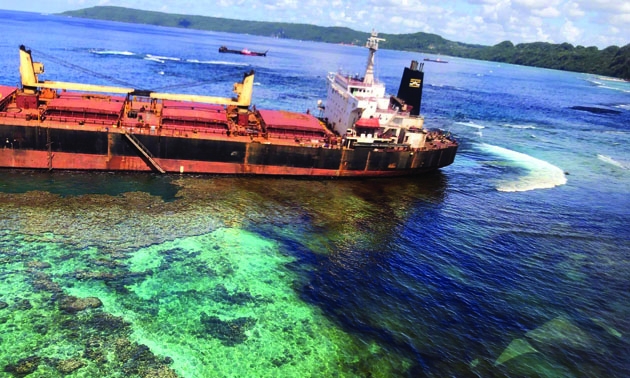SOLOMON Islands voters are on the verge of choosing their next government as the country goes to the polls amidst major economic and environmental challenges.
The 3 April election is a test of the country’s electoral system after the departure of the Regional Mission to Solomon Islands (RAMSI). International support for the process remains, with the Australian Government committing around 100 police and military officers during the election period. The New Zealand Government has also pledged its support. The two countries took the leading roles in the Pacific Islands Forum-backed RAMSI.
At close of nominations, 335 candidates were confirmed, 310 of them men and 25 women. 15 registered political parties and many independent candidates are contesting the election. Women make up around 7.5 per cent of candidates, however they face a formidable task. There was just one woman sitting in parliament when the election was called, the independent member for Gizo/Kolombangara, Lanelle Tanangada.
The hot topic during the campaign for most Solomon Islanders is easing of the expense of daily living. Many are also angry about the tax-free salaries that parliamentarians receive. Last December the government announced it was doubling the minimum wage to SBD8 (US$1) in a move it hopes will play well with voters. The Central Bank of Solomon Islands put inflation at 3.7 per cent in January 2019.
Some candidates are promising more jobs by tapping into the labour trade with Australia and New Zealand. A much talked about newcomer to the political scene is Peter Kenilorea Jr, son of the country’s first Prime Minister Sir Peter Kenilorea. Kenilorea Jr, who is running under the banner of the United Party, spent close to 10 years working at the United Nations headquarters in New York, and returned to take the post of Permanent Secretary to Foreign Affairs for a year. However, the call of his father’s legacy has been strong.
Posting online after being welcomed by thousands on his arrival at Manawai village in the East Are Are constituency, Kenilorea Jr said: “A truly moving and emotional homecoming. They are looking for change. My message to them, I am ready. Together, we can.”
Other candidates believe the demand for change is rippling through the islands, from village to village and in the urban areas. “Our people are suffering now, we still have a shortage of medicine, proper health facilities and much needed infrastructure,” says Wendy Vahoe Amangongo, who is contesting the election as an independent candidate for Malaita Outer Islands constituency. The incumbent government and caretaker Prime Minister Rick Hou of the Democratic Alliance Party have also come under fire for their response to the Rennell Island oil spill (see our story on page 19).
Hou says mining companies, shipping operators and their insurers are to blame for the spill. However Amangongo claims this is but one of the many disasters that have befallen the country because of bad political leadership.
“Our leaders also just voted themselves a tax-free salary whilst our women, youth and children struggle everyday to survive the expense of daily livelihood,” she angrily says.
Interestingly this election, seven candidates are former Prime Ministers. One of them, Gordon Darcy Lilo has decided to re-enter the race saying in this campaign: “We must be able to put our house in order before we try and address external matters. That is the number one priority.”
Solomon Islands Transparency International is calling for Solomon Islanders to choose wisely.
Rising above the noise, a few facts remain. The government has committed to hosting the 2023 Pacific Games which will coincide with the next national general elections. The administration of government funds to develop the constituencies is in serious need of review and change. The tax-free salaries voted in by the previous house must be cancelled to ensure the trust of the people is restored. Immigration must be controlled with the influx of Asian and Bangladesh nationals flooding various industries with no check. The shortage of medical supplies in the hospital and clinics around the country is still a serious risk to ordinary folk. Roads, bridges, schools and basic infrastructure is still lacking on the ground.
With young people between the ages 15 to 35 being close to 67 per cent of the entire population of Solomon Islands, jobs are needed to engage the young, or Solomon Islands sits on a time bomb again.

One Comment “We say”
Comments are closed.